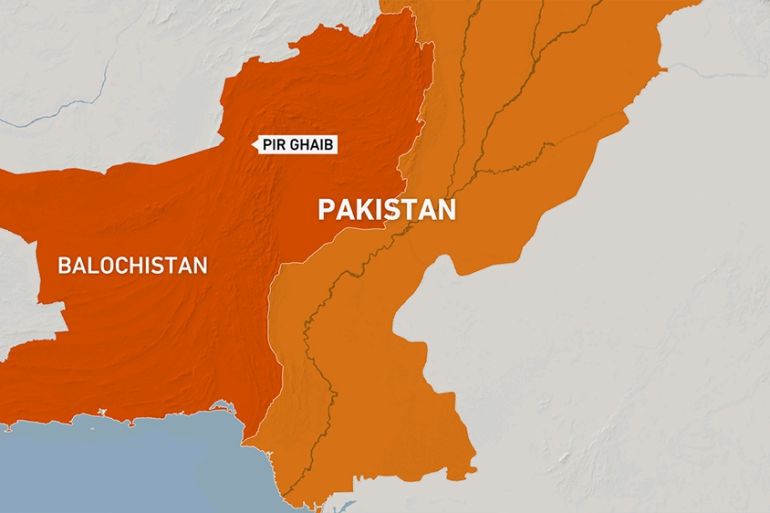Soldiers killed in two separate attacks in Pakistan’s Balochistan
Six soldiers were killed when their vehicle was targeted by a roadside bomb in the Pir Ghaib area, southeast of Quetta.

Islamabad, Pakistan – At least seven soldiers have been killed in two separate attacks in the southwest Pakistani province of Balochistan, the country’s military says, the latest violence in a region torn by separatist violence.
Six soldiers were killed when their vehicle was targeted by a roadside bomb in the Pir Ghaib area, about 55km (34 miles) southeast of the provincial capital Quetta, late on Monday, the military said in a statement.
Keep reading
list of 3 itemsPakistan: Five dead as Baloch separatist gunmen attack coal mine
Fears grow for Pakistani journalist missing in Sweden
The soldiers were “returning to base camp after routine patrolling duty”, the statement said.
Bashir Amand, a local administration official, confirmed the death toll to Al Jazeera.
In a separate attack on Monday, a soldier was killed during “an exchange of fire with terrorists” in the Mand area of the province, along the border with neighbouring Iran, the statement said.
No group immediately claimed responsibility for the attacks, but the area has seen a resurgence of ethnic separatist violence in recent weeks.
Six soldiers were killed in a similar attack earlier this month. That attack was claimed by the Baloch Liberation Army (BLA), an armed group calling for independence for the ethnic Baloch areas of the province.
Mineral-rich Balochistan is Pakistan’s largest but least populous province, located in the country’s southwest.
Its districts regularly appear at the bottom of socioeconomic indicator rankings in the country, and residents complain that they do not receive a fair share of their province’s extracted mineral and petrochemical wealth.
The $60bn China-Pakistan Economic Corridor (CPEC) project has brought renewed attention to the province, where a major deep-water port in the town of Gwadar is the culmination of a trade route being established to link China with the Arabian Sea through the length of Pakistan.
Baloch separatists have termed the projects “imperialism” and targeted Chinese engineers and workers associated with them.
Thousands of Pakistani military and paramilitary personnel are deputed to protect CPEC infrastructure projects still under construction and other areas of the province, where the police and civil administration have secondary authority.
Asad Hashim is Al Jazeera’s digital correspondent in Pakistan. He tweets @AsadHashim.